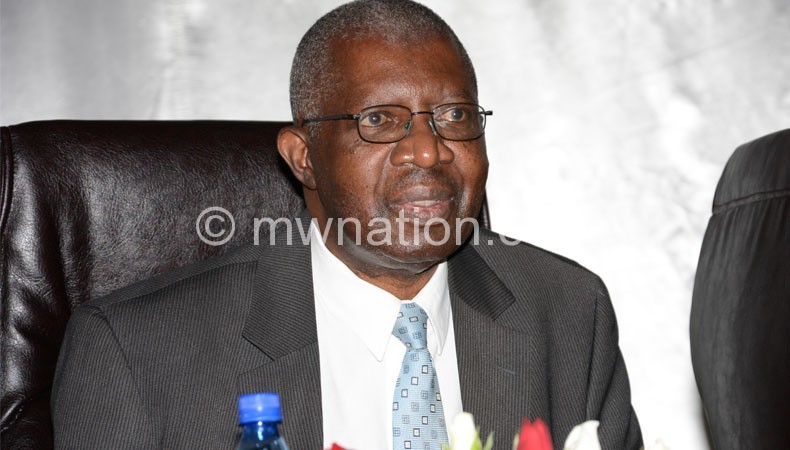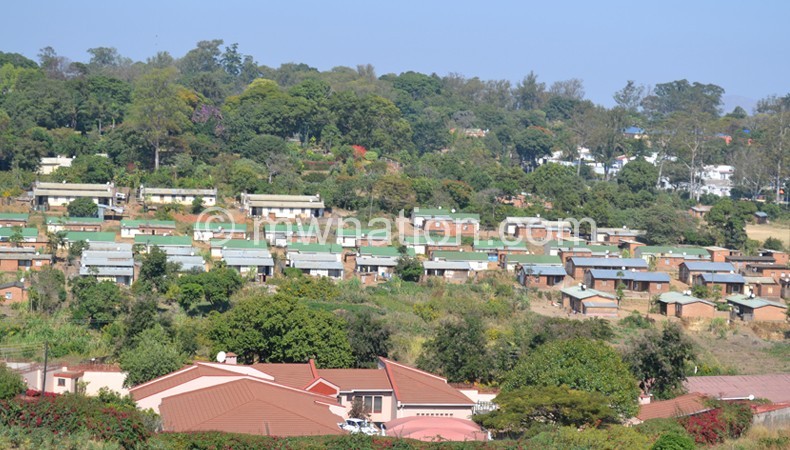Vision 2020: The good, the fall and the hope
Our previous three articles have revealed that Malawi, as envisioned by the Vision 2020 in 2000, will not be a middle-income economy by the year 2020. In this last part, EPHRAIM NYONDO examines why it has failed and explores what needs to be done for its successor to be better.
The verdict is here: Malawi, as the Vision 2020 envisioned in 2000, will not attain the status of a middle-income economy by the year 2020.

Just look at the figures.
The World Bank defines a middle-income economy as a nation with a per-capita gross national income (GNI) of between $1 036 and $12 615. Today, Malawi has a per capita GNI of $350.
It could, perhaps, take a miracle. Development, however, is not a product of miracles, says Blessings Chinsinga, professor of policy and development at University of Malawi’s Chancellor College.
“It is a product of systematic thought, learning and adaptation. You plan and consistently execute such plans. If not, don’t expect development to fall from the sky,” he says.
But Vision 2020 was a plan—and a long term one at that.
In an exclusive interview with Weekend Nation, Dr Justin Malewezi—Malawi’s first vice-president and also the senior government official who chaired the Vision 2020 consultation committee—says the vision was conceived to be a long term development plan that every successive government should base in budgeting on.

“We had gone to various countries, notably the Asian Tigers, and noted that long term development plans were a key feature behind their story of rise,” he says.
Today, five years to 2020 and with objectives and targets pointing to the contrary, it is right to diagnose the beast in the heart.
Malewezi, in the first place, acknowledges that not everything that the vision envisioned has failed. He points at the enviable progress of HIV and Aids fight, infrastructure development which he feels “we have done better” and also, “in the areas of social services we have not completely failed, there has been progress”.
However, generally, there is an agreement among practitioners, activists and scholars that the vision has failed to achieve the intended.
The question is: What went wrong?
Professor Chinsinga, in the first place, says the Vision 2020 was misunderstood both between political masters and technocrats.
In agreement with Malewezi, Chinsinga underlines that the vision was not an implementation tool but a long term development strategy that should guide short, medium and long term development plans that speak to each other.
“What we have seen are a series of short term development plans by successive regimes that hardly speak to each other.
“Instead of the vision providing substantial structure transformation, it was left to idle as each government came up with its plans that could not span with time, but just dictated by a political regime of a particular time,” he explains.

a succession vision
Chinsinga also notes that there was a need to have a think tank at the highest level to oversee its domestication and continuity.
In fact, Malewezi adds, the expectation and the philosophy behind the Vision 2020 was that each government should always go back to the vision as the basis for programming.
“This has not been the case because there have been many cases of political interference. Each government wants to be seen as bringing something new that is different from the previous one,” he says.
Billy Mayaya, a political and human rights activist, concurs, saying a key contributor to the failure has been the lack of policy continuity on the part of successive governments.
Every leader, he says, has opted to politicise the development agenda to score political points rather than to reinforce one policy focus.
“As a result, we are literally experiencing a great depression in Malawi where, ironically, policies are contributing to the loss of disposable incomes, lack of investment and the private sector being unable to cope,” he explains.
Mayaya further notes that policymakers, too, have not been “free to advance policy goals and objectives because partisan political interests are prioritised”.
There is a skewed focus on vain political issues instead of maintaining one collective focus on one main driving policy goal and objective, he says.
Governance and development specialist Dr Henry Chingaipe says the Vision “was not pursued in implementation because of lack of developmental leadership with a long time horizon”.
“We have had a deficit of developmental leadership and a political settlement that encourages short term, largely, consumption driven strategies,” he says.
Still seeing its relevance, the Public Service Reform Commission (PSRC) has recommended the need for the re-launching of Vision 2020 as part of renewing commitments.
Chinsinga, however, laughs off the suggestion, arguing it is a waste of time and money.
“Actually, the move does not make sense. What we need to do is to develop a successor vision through learning what has gone wrong with the previous one,” he says.
Fundamentally, we need another process to determine where we are and where we should go, explains Chinsinga.
“We should begin a process of a succession vision. However, in developing the process, we need to ensure that we continue fighting numerous challenges the country is facing that demand immediate redress,” he says.
On his part, Malewezi opines that the Vision 2020 should be revised basing on the benefits of experience.
“We can delete the provisions that do not make sense and sharpen those that are helpful,” he says.
He adds that the country can take advantage of the Sustainable Development Goals (SDGs) when revising the Vision 2020 so that they can be a source of domestication.
“We must not fail to revise the Vision 2020. No country has ever developed without a long term plan. We cannot do without a long term strategy,” he advises.





